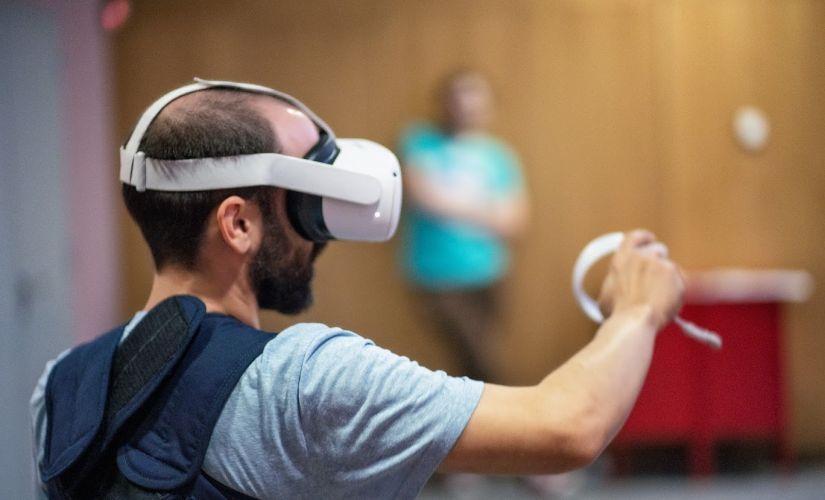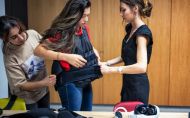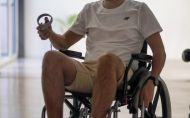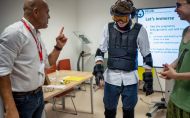Students participated in two workshops on accessibility and universal design. The classes were conducted by Dr Eng. Dorota Kamińska, Dr Eng. Grzegorz Zwoliński, Dr Eng. Anna Laska-Leśniewicz from the Faculty of Electrical, Electronic, Computer and Control Engineering, and Dr Eng. Aleksandra Jastrzębska from the Faculty of Mechanical Engineering.
The first part of the summer school was devoted to intensive workshops on empathy and immersion ('entering' into an artificially created experience). Their main aim was to make future engineers and designers aware of the importance of empathy in the design process. Students from different parts of Europe had the opportunity to immerse themselves in the everyday situations of people with special needs. They tested, among other things, a special waistcoat simulating a pregnant belly, a geriatric suit imitating some of the problems of the elderly and wheelchair mobility in public spaces.
In addition, the international teams developed their own plan for an immersive experience that would allow them to replicate the problems and challenges of their chosen group of people as much as possible. Ideas that emerged included people with dementia, those on the autism spectrum, the blind, seniors and those suffering from various phobias. In order to better 'step into the shoes' of such people, some teams decided to use modern immersive technologies, including virtual reality.
The second part of the workshop was devoted to intensive testing of the pre-developed VR applications. By using a highly immersive application environment, students were able to take on the role of people with selected disabilities. These included various types of limitations of a mental nature, visual dysfunctions and motor impairments requiring the use of a wheelchair. It was also simulated to be an elderly person or a person with an advanced pregnancy. The testing procedures used tools of subjective comparative assessment of users, expert observation and team discussions.
The tests provided an answer as to which of the adopted scenarios were most effective for achieving the goal of increasing empathy by the users of the developed educational tools, and which needed to undergo some modifications. In addition, the applications were subjected to standard usability tests, enabling the final products to achieve high quality.
Mr UD is an Erasmus+ funded project and its main objective is to increase the competences of future engineers, educators and designers by giving them a set of practical educational tools using mixed reality (MR) to better understand different needs. The immersion of users into virtual environments by interacting with other senses, using physical simulators of different constraints, allows to intensify the level of experience acquired. More about the project mrud.p.lodz.pl




